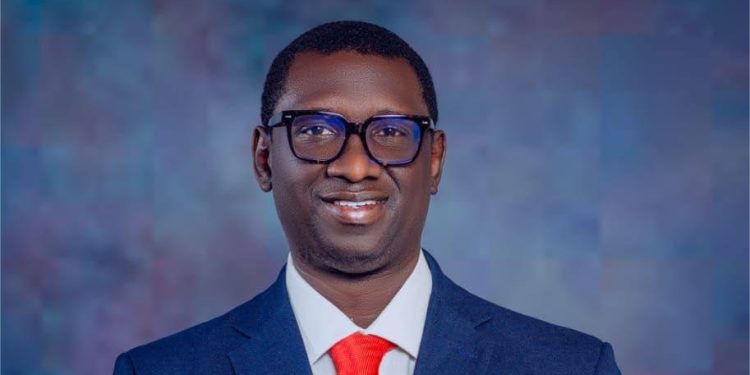The Burden and Promise of Dr. Ibrahim Bangura
By Amina Cole
FREETOWN: For Sierra Leone, this moment is particularly crucial in its contemporary political history. Dr. Ibrahim Bangura, who joined the APC comes to the political arena as a fully-fledged scholar. His new role is also a new challenge. What sort of leadership does Sierra Leone really need? For the first time, the rise of Dr. Bangura suggests a diversion from the politics of patronage and a possible new turn toward politics of principle.
A New Kind of Contender
Dr. Bangura also comes to political contested spaces at a time when the pattern of political figures is changing in Sierra Leone. He combines the attributes of a new professional class, a new political leadership, and the rare feature within the new class—the theoretical and policy skills in the politics of governance, policy reform, and policy analysis. He operates within a systemic culture that rewards political rhetoric rather than the actual delivery of services to followers. People demand and expect political services to be delivered rather than the governance that comes from rational serval control of the civic order.
To his followers, this is someone who is ready to demand the political culture that the region has long expected. He is described as someone who is ready to demand accountability to the region, to the political elite, and to the people. The critics of Dr. Bangura also ask whether intent as the only rational political order and the control of civic disorder can succeed in the siege and besiege order of economic control, tribe followed, and political order.
The gap between theory and political practice is an important part of his challenge. Can a reformist-academic withstand the political environment of Sierra Leone while still holding onto the ideals that make him a reformist scholar?
Between Idealism and Realpolitics
Dr. Bangura’s case is like that of other reform-oriented leaders seeking to modernize highly traditional political systems. Like Barack Obama in his early career, Bangura does not depend on populist rhetoric, but on ideas. His point is clear: Without honest governance, equitable development, and an empowered citizenry, Sierra Leone’s sustainable development is a dream.
He advocates a radical political shift in Sierra Leone from a focus on individual personalities to policies, a first in a political culture where loyalty to a party is prioritized over job execution. For many, the message is exciting; for some, it is simply childish. Sierra Leone’s voters have for a long time been promised more than plans.
Dr. Bangura maintains, however, that governance should be a public responsibility and not a personal one. He believes that in the politics of stewardship, one is morally bound to serve, while the rest of society expects a privilege to rule. It is this passion that brings him the paradox of widespread admiration, as well as relentless criticism.
The Invisibility of Corruption
Dr. Bangura’s campaign advances the moral question: is it possible to engage in Sierra Leonean politics and not become corrupted in the process? The available history suggests not. His supporters believe, however, that his devotion to his faith, national discipline, and a strong sense of nationalism ought to defeat the historical available assumption.
The affection is borrowed authority: some grant it to and become accountable to. This attitude appeals to the young professionals of the diaspora, many of whom see in him and the rest of his political peers the long-awaited national political gerontocracy.
Ideals are insufficient. The political landscape is characterized by several interlocking and deep-seated problems: an ailing economy, high youth unemployment, and an exploding drug epidemic due to synthetic “kush” which is ravaging communities in Sierra Leone. These inevitable political problems, coupled with his “vision,” will demand a high degree of political pragmatism and (adaptive) boldness.
Dr. Bangura’s biggest test will not be winning an election. It will be sustaining a belief. Sierra Leone’s people have suffered too many broken promises. To lead them to the promised land will be to rebuild the burnt trust, brick by brick, as they have demanded.
He must convert reason to sway, belief to alliance, and aspirations to real change. Balancing idealism with realism will show both his ability and his value: to be a footnote of reform or a changemaker of a new caliber.
In Sierra Leone, a potential new beginning of political leadership reimagined is in the hands of Dr Ibrahim Bangura. Blame the system or society for a potential failure, it teaches a new prism of politics and leadership. Blame will not be on a misalignment of vision and intellect.











